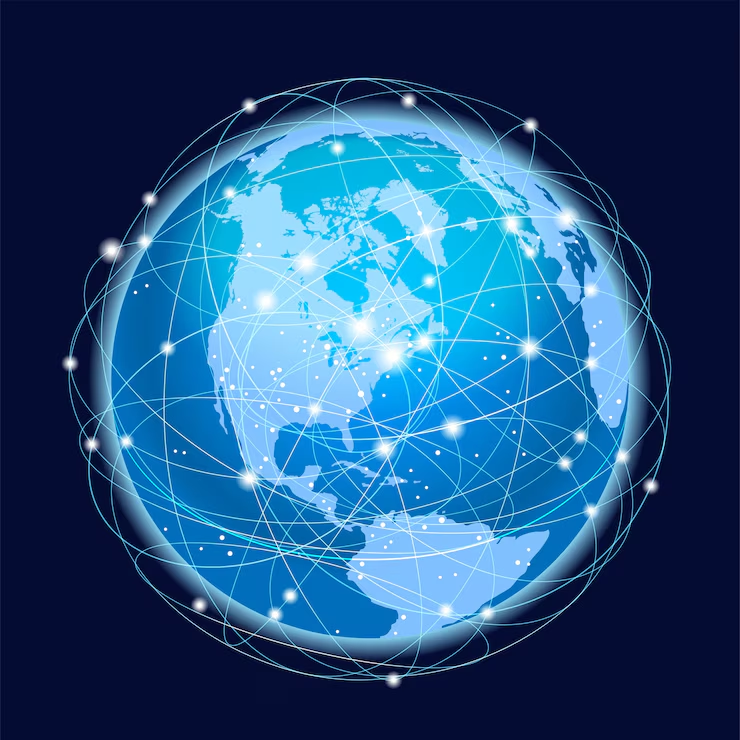In today’s deeply interconnected world, the line between domestic and international affairs is increasingly blurred. Events in Washington, Beijing, Moscow, or Brussels can send ripples across India’s economy, foreign policy, energy security, and even the daily lives of its citizens. As the world becomes more unpredictable shaped by wars, trade shifts, technological breakthroughs, and environmental emergencies India finds itself both affected and influential on the global stage.
This is a comprehensive look at the most significant global developments that are shaping India’s present and future.
1. Geopolitical Shifts: India’s Balancing Act
The U.S.–China Rivalry
The ongoing tensions between the United States and China continue to dominate global geopolitics. For India, this rivalry presents both challenges and opportunities.
On one hand, increased U.S. scrutiny on China has opened up supply chain realignments that benefit Indian manufacturing, especially under the “China Plus One” strategy. On the other hand, border tensions with China remain unresolved, and India must tread carefully while strengthening ties with the U.S. without pushing Beijing too far.
The Russia–Ukraine War
The war in Ukraine has had a direct impact on India, particularly in terms of:
- Energy security: Russia has become India’s top crude oil supplier due to discounted prices.
- Diplomatic tightrope: India has chosen a neutral stance, emphasizing peace while continuing trade with Russia, which has drawn criticism from some Western nations.
- Food and fertilizer: Global disruptions in grain and fertilizer exports have affected Indian imports and prices, impacting both consumers and farmers.
2. Global Economy: A Tightrope Walk

Interest Rates and Inflation
The U.S. Federal Reserve and European Central Bank have raised interest rates repeatedly to fight inflation. This move affects India in several ways:
- Capital outflows: Foreign investors often pull out from emerging markets like India in favor of safer U.S. bonds.
- Rupee pressure: A stronger dollar weakens the rupee, making imports (especially crude oil) more expensive.
- Export slowdown: Slower global demand impacts India’s export-heavy sectors like IT services, textiles, and automotive parts.
China’s Economic Slowdown
China’s post-COVID recovery has been slower than expected, and its real estate crisis has deepened. While this may reduce competition for global investment, it also dampens demand from one of India’s largest trading partners. Additionally, a weaker China impacts the broader Asian growth outlook.
3. Climate and Energy: Global Action, Local Impact
Extreme Weather and Climate Agreements
Global climate events—heatwaves in Europe, floods in Pakistan, wildfires in Canada—have underscored the urgency of climate action. For India, which faces its own climate challenges (droughts, heatwaves, coastal erosion), the outcomes of international summits like COP28 matter.
India has committed to net-zero emissions by 2070 and is scaling up solar and wind energy. However, global funding and technology transfers remain key to these ambitions. As rich countries delay their climate finance promises, India’s green transition faces real financial constraints.
Global Oil Markets
The decisions of OPE+, U.S. shale producers, and geopolitical developments in the Middle East have a direct bearing on India, which imports nearly 85% of its oil. Global price hikes affect inflation, transport costs, and even cooking gas prices at home.
India’s strategic moves—such as diversifying suppliers and building oil reserves—are partially shaped by global market dynamics.
4. Technology & Data: Global Policies, Local Effects
Digital Sovereignty and Tech Wars
Global tech battles are shaping India’s digital economy. With the U.S. pushing back against Chinese technology, and the EU enforcing strict digital regulations, India must carve out its own space.
India is strengthening its own data protection laws and digital public infrastructure, while remaining wary of foreign surveillance or control over key digital assets. The recent moves to ban or restrict Chinese apps are part of this broader strategy.
AI Regulation and Ethics
AI is exploding globally, and debates around its ethical use, data biases, and potential job displacement are in full swing. India’s own startup and IT sectors are heavily invested in AI, and decisions made in the U.S., EU, or China around regulation can set global standards that Indian companies must follow or adapt to.
5. Trade Wars and Global Supply Chains
Friendshoring and Decoupling from China

The global shift away from China-centric supply chains is reshaping international trade. India is seen as a major alternative manufacturing hub. The government’s Production Linked Incentive (PLI) schemes in sectors like electronics, semiconductors, and textiles are directly influenced by global reorientation.
India has signed or is negotiating free trade agreements (FTAs) with the EU, UK, Australia, and Canada, aiming to boost exports and reduce trade barriers. These deals are strategic responses to shifting global alliances and supply chain realignments.
6. Migration and the Global Indian Diaspora
Skilled Migration Opportunities
As Western countries face demographic slowdowns and labor shortages, Indian professionals and students are in high demand. Canada, Australia, and Germany have relaxed immigration policies, while the U.S. continues to debate over H-1B visa caps.
India’s economy benefits from this through remittances (over $100 billion annually) and soft power. However, brain drain and visa backlogs remain significant concerns.
Diaspora Diplomacy
The 35-million-strong Indian diaspora plays an increasingly important role in shaping foreign policy. From Silicon Valley CEOs to UK’s Prime Minister Rishi Sunak, Indian-origin leaders are influencing the global perception of India. The government actively engages with overseas Indians to attract investment, talent, and influence.
7. Health and Pandemic Preparedness
Global Disease Surveillance
COVID-19 taught the world a lesson about the importance of global coordination in health crises. India, with its pharmaceutical and vaccine capabilities (e.g., Serum Institute of India), plays a central role in global health security.
As new health threats emerge—like outbreaks of H5N1 (bird flu) or rising antimicrobial resistance—India’s response is tied to global surveillance systems and WHO cooperation. Vaccine diplomacy and research partnerships will be essential in the years ahead.
8. Global Politics and the UN Order
Calls for UN Reform
India’s growing clout has reignited discussions around UN Security Council reform. With the world’s largest population and one of the largest economies, India argues for a permanent seat. Support from countries like the U.S., France, and Japan has grown—but institutional inertia remains.
Meanwhile, India continues to participate in key global groupings like G20, BRICS, QUAD, and SCO, showcasing a multifaceted foreign policy that spans both East and West.
Conclusion: A Global India in a Changing World
India no longer watches global events from the sidelines—it is a stakeholder and a shaper of the international order. From boardrooms to diplomatic halls, what happens in the world impacts India’s policies, economy, and society in profound ways.
But India is also increasingly influencing the world: as a market, a technology hub, a diplomatic force, and a cultural powerhouse. Whether it’s managing inflation amid global shocks, crafting trade alliances, or navigating tech ethics, India’s readiness to adapt to global events will determine how it leverages its rising power.



